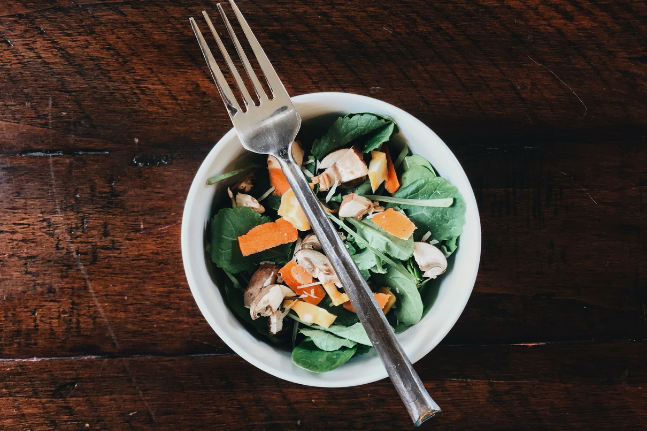Do you struggle with memory loss? Find out how a holistic diet can help
This patient was a 65-year-old woman who was still working but who had had a couple of major events that impacted on her memory and concentration. The first was a heart attack five years earlier when she had a stent placed in the aorta. She had taken her prescribed medication religiously for a year or two but had been forgetting (or not wanting) to take them for a while. She was very concerned about the statins she was prescribed as these can be associated with memory loss.
She had also had a business that had been taken over in a hostile manner, causing such severe stress that she felt that this was much of the problem. Her memory loss became much worse during this time, so she was now worried that she had the early signs of dementia. There are many potential causes of memory loss — stress being a major one — and once diagnosed correctly most of these causes are reversible. It has been said that that there are over 50 conditions that can mimic the symptoms of dementia.
… improving digestive function is critical.
From a health perspective, improving digestive function is critical. Reactions to gluten (through allergy or intolerance) can be problematic, as gluten fragments can alter the blood–brain barrier. A candida overgrowth in the gut can have similar impacts, and research shows an alteration of the blood–brain barrier causing inflammation and memory impairment. She had had a series of prescribed antibiotics for a H pylori infection, and large doses of antibiotics can mutate candida into its pathogenic form. This woman generally avoided wheat as it gave her severe joint pain if she ate it, a sign that it was potential factor, but she was craving sugars and was eating far more than before. Severe stress can also trigger digestive problems.
She was also a smoker and drank a couple of glasses of wine every evening, the wine possibly contributing to the candida and the smoking causing oxidative and inflammatory stress.
B vitamin deficiencies can contribute to memory loss, particularly folate and B12 (important in methylation reactions in the liver) and B1, B2, B3 and B6. All of these have been researched as protective risk factors against cognitive decline.
As she had reflux (resulting from H pylori) this meant she was also taking proton pump inhibitors. These drugs reduce stomach acidity and inflammation, but they can create significant deficiencies of folate, B12 and magnesium. Low B12 is specifically associated with brain shrinkage and diminished brain function. B vitamins are also depleted by alcohol consumption, along with zinc and magnesium.
Measuring and correcting homocysteine levels (ideally to about 7 for optimal health) is important in maintaining good cognitive and cardiovascular function. Dehydration can also contribute to brain shrinkage.
The treatment
To improve her memory there were multiple factors needing to be addressed. She was advised that her diet needed to be high in vegetables and fruit, walnuts as snacks, with fish as the major protein (preferably wild-caught small fish), no processed sugars, minimal alcohol, and the fresh food to be largely organic. Fresh organically grown foods have high levels of antioxidant and anti-inflammatory nutrients which improve brain activity as people age.
Fish is brain food, partly because its iodine content improves thyroid function, but it also has high levels of the essential omega-3 fatty acids vital for healthy brain function. The cofactors to ensure these fatty acids are effective are lecithin for correct digestion and zinc, magnesium and vitamins B3 and B6.
Antioxidants are known to improve memory, especially the fat-soluble vitamins E, D, K2 and ubiquinol, so these were recommended as supplements, along with krill oil.
Considering her history and lifestyle, one aspect of concern was the risk of vascular dementia, thickening plaques in the carotid artery walls diminishing blood supply to the brain (called ischaemia). We discussed this with her GP and recommended she start a short series of intravenous vitamin C and EDTA (a chelation agent for arterial plaques). The herb bergamot (Citrus bergamia) was also recommended as it reduces arterial plaques, thereby increasing the blood supply to the brain.
A herbal mix was recommended that included Ginkgo biloba to improve circulation to the brain, facilitating nutrient delivery and waste removal (ginkgo also lowers blood pressure and is a brain antioxidant); Bacopa monnieri increases nerve cell connection in the hippocampus, so improves memory and works well with ginkgo; and Melissa officinalis (the Arabian scholar’s herb) has research indicating reduced plaque formation in the brain. Rosemarinus officinalis was added as a brain antioxidant and the herb of remembrance. Centella asiastica was also added as it is used in Ayurvedic medicine for digestion and stress, as an anti-inflammatory and for improving memory.
Overall she was happy to make many of these changes, but found some more difficult than others (stopping smoking was one she had great difficulty with), but over a period of time she felt she was getting “better days”, was happy with her progress and the anxiety of potential dementia was reduced. For long-term success this will be a permanent lifestyle change.








